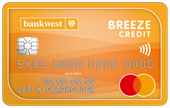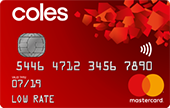Credit cards for pensioners, retirees and Centrelink income
Although pensioners can get a credit card, the process is more difficult than for Australians with a full-time salary. Age discrimination in the credit card application process is a well-known and increasing problem for older Australians.
The primary reason behind this is that banks generate less revenue from retirees, who often pay their balances before the due date to avoid interest charges—the most financially savvy way to use a credit card. Retirees without a steady income may face challenges when applying for a credit card, but approval is still possible with the right approach and understanding of the application process.

David Boyd, co-founder of Credit Card Compare, explains,
It is more challenging for a pensioner applying for a credit card when you rely on a pension as your primary source of income. The banks tend to consider pensioners to be similar to people on a low income or unemployed. Expect to have to present details of your assets and to have a low credit limit if approved.
Types of credit cards for pensioners
- Low rate cards: Suitable for pensioners looking to minimise interest costs on balances carried forward each month. May offer an introductory low or 0% interest rate for a specified period.
- Rewards cards: Provide opportunities to earn frequent flyer points, cashback, or other rewards on eligible purchases. They can be used for everyday spending so long as you pay the balance off in full on each statement.
- No annual fee cards: A credit card with no annual fee typically has no frills or additional benefits. They are worth considering since no cost is associated with keeping these credit card accounts open.
What to consider when choosing the best credit card for pensioners
There are several things you need to consider and think about what credit card suits you best and your financial needs before applying:
- Interest rates: Select a competitive card, especially if you anticipate carrying a balance.
- Fees: Consider annual fees, late payment fees, foreign exchange fees (on overseas purchases) and other charges associated with the card.
- Rewards and benefits: Research the rewards program and additional perks the card issuer offers. If you are unsure you'll use all the bells and whistles, don't apply.
- Credit limit: Ensure that the credit limit aligns with your financial capacity to make repayments.
- Eligibility criteria: Check the eligibility requirements, including age restrictions and income criteria.

Andrew Boyd, co-founder of Credit Card Compare, explains,
If you want to play it safe, look for credit cards with low fees, low rates, and no frills or additional benefits. Check your credit score before applying and address any issues it may raise.
How to apply for a credit card as a pensioner
To apply for a credit card as a pensioner, follow these steps.
- Assess your financial situation: Review your income, expenses, and credit history to determine your borrowing capacity.
- Research: Compare various credit card options available for pensioners and choose a card that best suits your needs.
- Gather documentation: Prepare necessary documents such as identification, proof of income, and recent bank statements.
- Submit application: Complete the application form provided by the card issuer and submit it online or in person.
- Wait for approval: Allow time for the card issuer to process your application and notify you of their decision.
Note that the bank may try to contact you for more information before they can make a decision.











